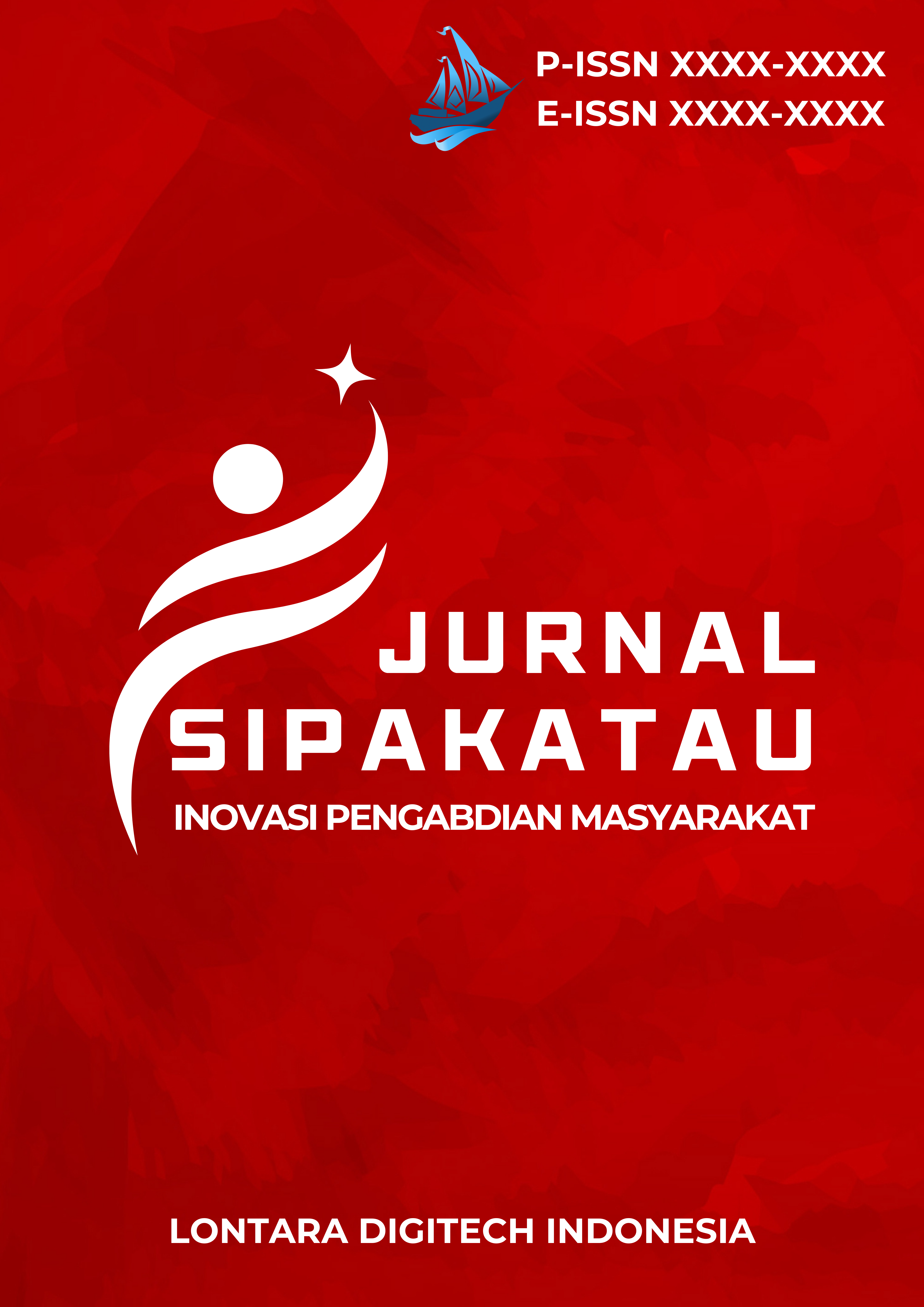PKM: Assistance for “TAPIS” Fabric Production Businesses (UMKM) Negeri Katon Village, Pesawaran Regency, Lampung
DOI:
https://doi.org/10.61220/jsipakatau.v1i2.242Keywords:
MSMEs, medium-sized enterprises, Manufacture, TapisAbstract
However, business players have not utilized it to its full potential despite the fact that the regional government of the Pesawaran area has provided the raw ingredients and equipment necessary to manufacture filter cloth. As a result of their lack of innovation, the items that they manufacture do not meet the requirements of the market share. The purpose of this study is to provide an explanation and analysis of the empowerment of micro- and small-scale enterprises (MSMEs) that produce filter cloth “TAPIS” in Negeri Katon Village, where there exist factors that impede their growth, as well as the efforts that have been taken to overcome these factors. A method known as inductive analysis is utilized in this qualitative descriptive study. In order to conduct an analysis of the empowerment of micro, small, and medium-sized enterprises (MSMEs/ UMKM) in the filter cloth industry, In times of economic turmoil, micro, small, and medium-sized enterprises ((MSMEs) play a crucial part in the Indonesian economy. MSMEs were able to survive the financial crisis that occurred in 1998 as well as the pandemic that was caused by the COVID-19 virus. According to the three roles that micro, small, and medium-sized enterprises (MSMEs/ UMKM) play in the Indonesian economy, which include a means of alleviating poverty, a means of equalizing the economic level of small people, and a means of earning foreign exchange for the country, micro, small, and medium-sized enterprises (MSMEs) are a part of the independent Indonesian economy and have a great potential to improve the welfare of the people. Reducing the amount of data, presenting it, and making conclusions are all steps in the process of data analysis. According to research, the Pesawaran Regency Cooperative Industry and Trade Service has provided support to micro-screen cloth “Tapis” industry makers in Negeri Katon Village who are considered to be micro- or small-scale enterprises.
References
Eliana, Isma, A., Astuti, I. N., Ivana, F., Kesuma, I., & Mediyanti, S. (2023). Pengenalan Pembuatan Laporan Keuangan pada Pekerja Migran Indonesia (PMI) Berbasis Digital. TEKNOVOKASI: Jurnal Pengabdian Masyarakat, 1(3), 195-204.. https://doi.org/10.59562/teknovokasi.v1i3.523
Fleischmann, K., Hielscher, S., & Merritt, T. (2016). Making things in fab labs: a case study on sustainability and co-creation. Digital Creativity, 27(2), 113-131. https://doi.org/10.1080/14626268.2015.1135809
Isma, A., Azis, F., & Alisyahbana, A. N. Q. A. (2023). Membangun Kemandirian Ekonomi Keluarga Berbasis Mompreneurs Melalui Inovasi Ubi Jalar Menjadi Kripik Siap Jual. Community Development Journal: Jurnal Pengabdian Masyarakat, 4(3), 5512-5518. https://doi.org/10.31004/cdj.v4i3.17169
Khan, M., Khan, M., & Cho, M. (2018). Environmentally sustainable biogenic fabrication of aunp decorated-graphitic g-c3n4 nanostructures towards improved photoelectrochemical performances. RSC Advances, 8(25), 13898-13909. https://doi.org/10.1039/c8ra00690c
Kohtala, C. (2016). Making “making” critical: how sustainability is constituted in fab lab ideology. The Design Journal, 20(3), 375-394. https://doi.org/10.1080/14606925.2016.1261504
Kohtala, C. and Hyysalo, S. (2015). Anticipated environmental sustainability of personal fabrication. Journal of Cleaner Production, 99, 333-344. https://doi.org/10.1016/j.jclepro.2015.02.093
Mattana, G., Kinkeldei, T., Leuenberger, D., Ataman, C., Ruan, J., Molina-Lopez, F., … & Rooij, N. (2013). Woven temperature and humidity sensors on flexible plastic substrates for e-textile applications. Ieee Sensors Journal, 13(10), 3901-3909. https://doi.org/10.1109/jsen.2013.2257167
Millard, J., Sorivelle, M., Deljanin, S., Unterfrauner, E., & Voigt, C. (2018). Is the maker movement contributing to sustainability?. Sustainability, 10(7), 2212. https://doi.org/10.3390/su10072212
Septiyana, F., Shihab, M., Kusumah, H., & Apriliasari, D. (2022). Analysis of the effect of product quality, price perception and social value on purchase decisions for lampung tapis fabrics. Aptisi Transactions on Management (Atm), 7(1), 54-59. https://doi.org/10.33050/atm.v7i1.1744
Soomro, S., Casakin, H., & Georgiev, G. (2021). Sustainable design and prototyping using digital fabrication tools for education. Sustainability, 13(3), 1196. https://doi.org/10.3390/su13031196
Ulkir, O. (2023). Energy-consumption-based life cycle assessment of additive-manufactured product with different types of materials. Polymers, 15(6), 1466. https://doi.org/10.3390/polym15061466
Downloads
Published
Issue
Section
License
Copyright (c) 2023 Arnes Yuli Vandika (Author)

This work is licensed under a Creative Commons Attribution-ShareAlike 4.0 International License.
















 Email: sipakatau@lontaradigitech.com
Email: sipakatau@lontaradigitech.com
